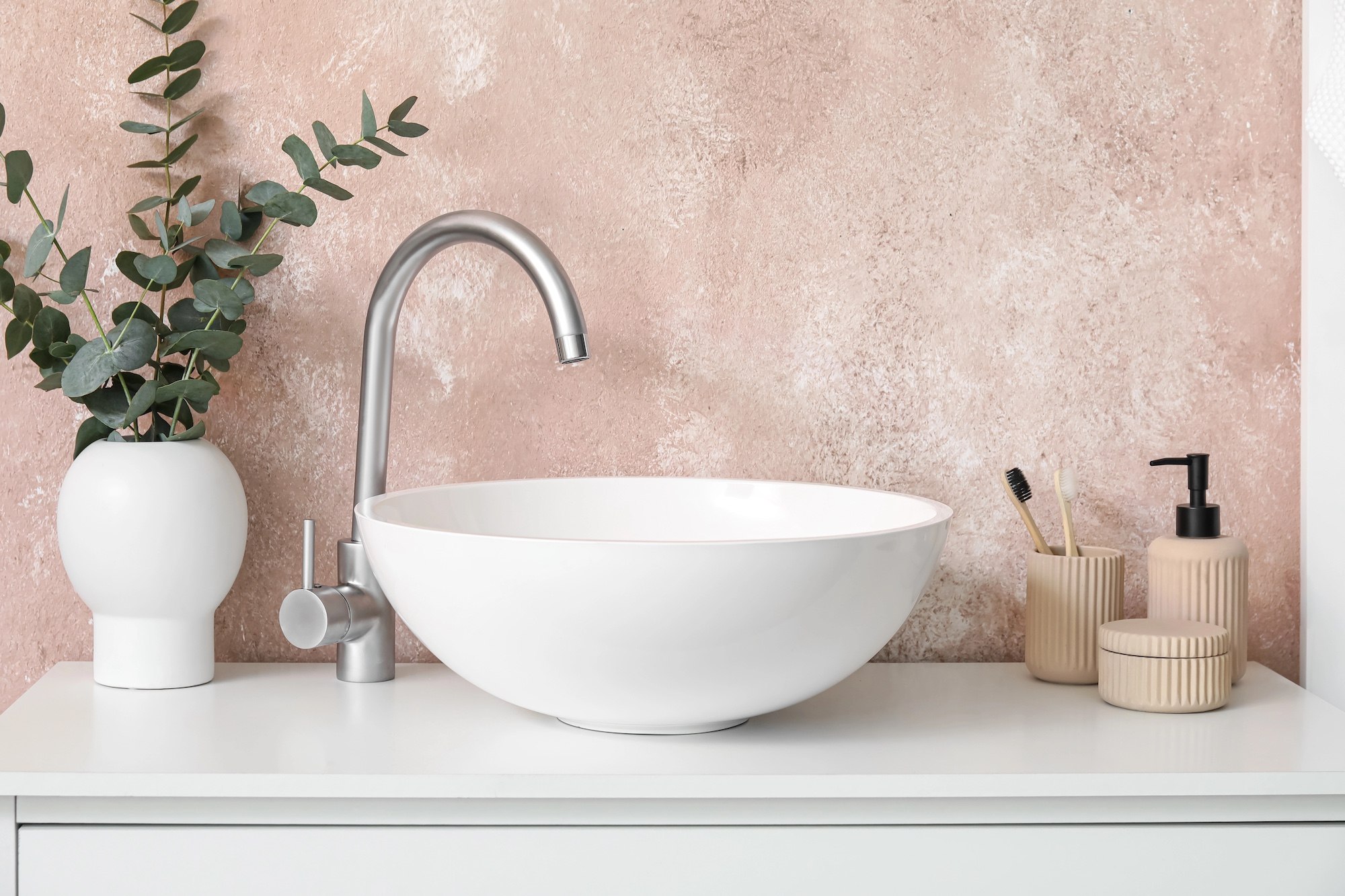When someone is diagnosed with cancer, life undergoes a profound transformation. Daily routines are disrupted, energy becomes a precious commodity, and health rightfully claims the top priority. Tasks once considered simple, like cleaning the kitchen or vacuuming the floors, can suddenly feel monumental. For many patients, the physical and emotional toll of maintaining a clean home during treatment becomes a silent stressor, compounding an already overwhelming journey.
However, a clean home offers more than just surface-level tidiness. It represents a safer, more comfortable environment that directly supports recovery and fosters a vital sense of ease and reassurance. Leading health organizations, such as the American Cancer Society (ACS) and the National Cancer Institute (NCI), consistently highlight that cancer treatments like chemotherapy and radiation can weaken the immune system. This makes patients more vulnerable to infections stemming from dust, bacteria, and other common household contaminants.
This is where professional house cleaning services can play a crucial role—not as a luxury, but as an essential layer of support. Initiatives like Cleaning for a Reason (a program of ISSA Charities) underscore the growing recognition of compassionate, health-conscious cleaning as part of a holistic approach to care. In this article, we’ll explore how professional cleaners can help cancer patients and their families protect health, reduce stress, and cultivate a home that truly serves as a sanctuary for healing.
Why a Clean Home Environment Matters During Cancer Treatment

Special Considerations for Immunocompromised Patients
Certain cancer treatments, particularly chemotherapy, stem cell transplants, or conditions like neutropenia, can severely compromise the immune system. Individuals in this state face a significantly heightened risk of infection from everyday environmental contaminants. For these immunocompromised patients, a meticulously clean home transitions from a comfort to a critical layer of protection.
Cleaning professionals working in such environments should adhere to strict protocols, such as using disposable gloves, sanitizing tools between homes, and taking extraordinary precautions to prevent cross-contamination. Routine cleaning should emphasize the disinfection of high-touch areas, maintaining optimal air quality, and limiting exposure to irritants like mold or excessive pet dander. Ensuring a low-microbial, well-ventilated space is paramount to preventing unnecessary health complications and promoting tranquility during recovery.
Weakened Immunity and the Risk of Infection
As noted, cancer treatments can severely impair the immune system, leaving patients far more vulnerable to infections that a healthy body would typically fend off. The National Cancer Institute advises that even minor exposure to bacteria can lead to serious complications for those with compromised immunity.
Common household contaminants like dust, mold, and bacteria, if not diligently managed, can escalate health risks. These microbes may contribute to respiratory infections or allergic reactions, particularly problematic for those already battling illness. Thus, keeping high-touch surfaces—doorknobs, light switches, bathroom fixtures, and kitchen counters—regularly disinfected becomes a vital component of infection control.

Environmental Hygiene as Preventative Support
While maintaining a clean home is not a medical cure, it is an indispensable form of preventative support. It helps create an environment where patients are less likely to encounter irritants or pathogens that could delay treatment, trigger complications, or impede recovery. It also offers caregivers significant peace of mind, knowing the home environment is contributing positively to the healing process.
The Emotional and Mental Health Benefits of a Clean Space
Cleanliness and a Sense of Control
A cancer diagnosis can often leave individuals feeling a profound loss of control over their lives amidst the relentless cycle of medical appointments and physical and emotional strain. A clean and orderly living space, however, can help restore a vital sense of stability. This restored order not only provides a small yet significant measure of control but also, as organizations like the Canadian Cancer Society (CCS) suggest, often translates into an internal sense of calm, positively impacting a patient’s mental state.
How Clutter Impacts Stress and Fatigue
Excess clutter and an unclean environment can exacerbate stress, reduce focus, and even contribute to poor sleep, all detrimental for someone already coping with the cognitive and emotional effects of illness and treatment. A professionally cleaned home minimizes visual and sensory overload, offering a true sanctuary where rest and emotional recovery can more readily occur.

Health-Supportive Benefits of Professional Cleaning Services
Reducing Germs, Allergens, and Irritants
Professionally trained cleaners possess the expertise to effectively disinfect surfaces and remove buildup that can harbor germs, allergens, and other irritants. By focusing on high-risk areas and utilizing safe, approved cleaning agents, they help create an environment conducive to immune health. This includes meticulous attention to bathrooms, kitchens, frequently touched surfaces, and even soft furnishings. Should pets be present, cleaners may use HEPA-filter vacuums and pet-safe products to manage dander, further supporting a breathable, hygienic space.
Supporting Energy Conservation
Cleaning requires considerable physical effort—effort that many patients undergoing treatment simply cannot afford to expend. Outsourcing these demanding tasks allows patients to conserve their limited energy for essential needs like attending medical appointments, maintaining nutrition, or simply resting and recuperating.
Creating a Restorative Environment for Recovery
There’s an undeniable psychological uplift that accompanies entering a clean, well-maintained space. The absence of mess, dust, or unpleasant odors can have a deeply calming effect and help reduce anxiety. For cancer patients, this positive shift in their immediate surroundings can make the challenges of day-to-day life feel more manageable.
Supporting Caregivers and Household Balance
The benefits of professional cleaning services extend beyond the patient to the entire household. Caregivers often juggle employment, parenting responsibilities, and significant emotional labor. Removing the burden of house cleaning from their extensive to-do list can alleviate stress, prevent burnout, and foster a more peaceful, balanced home dynamic.
What to Look for in a Cleaning Service for Health-Sensitive Clients
Choosing a cleaning service for someone with health sensitivities requires careful consideration. Here are key factors:
- Use of Appropriate Products: Inquire if they use non-toxic, fragrance-free, or hypoallergenic cleaning agents. For health-sensitive individuals, harsh chemicals and strong scents can be irritants. Reputable companies should offer transparency about their products and provide safer alternatives.
- Staff Training and Hygiene Protocols: Ensure cleaners are properly trained in sanitation practices, cross-contamination prevention, and working respectfully in medically sensitive environments. Are they insured and background-checked?
- Flexible and Respectful Service: Health conditions can be unpredictable. Look for providers who offer flexible scheduling, communicate clearly and respectfully, and strive to work with minimal disruption, especially if the patient is resting at home.
- Experience with Health-Sensitive Clients: Ask if the service has prior experience cleaning for immunocompromised individuals or those with chronic illnesses.
- Clear Communication: The service should be willing to discuss your specific needs, concerns, and any areas or items requiring special attention or avoidance.
Community and Organizational Support for Cancer Patients
Globally, initiatives like Cleaning for a Reason (an ISSA Charity serving patients in the US, Canada, UK, and Australia) exemplify the dedicated support that can make a difference, often connecting cancer patients with volunteer or subsidized professional cleaning services.
Beyond such specific non-profits, resources may be found through:
- Local Cancer Societies or Patient Advocacy Groups: These organizations often provide directories of various support services. For example, residents in the Cayman Islands can connect with the Cayman Islands Cancer Society (CICS), the Cayman Islands Breast Cancer Foundation, and Jasmine for local support, information, and community programs.
- Hospital Social Work Departments or Patient Navigators: Healthcare professionals within hospitals and larger clinics are often aware of community initiatives, grants, or assistance programs that can provide support. For instance, in the Cayman Islands, patients and their families engaging with major healthcare providers such as the Health Services Authority (HSA), Doctors Hospital, or Health City Cayman Islands can inquire with these institutions about accessing social work services or patient navigators who can help connect them to relevant resources.
- Online Searches: Using terms like “cancer patient support services + [your city/region]” or “assistance for home care cancer patients + [your city/region]” can yield local results.
Compassionate cleaning companies recognize this profound need and may offer specialized services or, on a case-by-case basis, provide support to individuals in their local communities who are affected by cancer. The core principle is to find support that is understanding, reliable, and prioritizes the patient’s health and well-being. When considering any professional home cleaning, the priority is always to find a provider that demonstrates a deep understanding of the unique needs of health-sensitive individuals.
How to Arrange Cleaning Support for a Loved One
- Talk About It Without Adding Pressure: Many patients hesitate to ask for help. Framing professional cleaning as a supportive gesture, not a judgment, can make the offer easier to accept. Emphasize that their health and comfort come first.
- Gift Cleaning as Supportive Care: Gift certificates or prepaid cleaning sessions are thoughtful alternatives to traditional care packages. They’re practical, non-intrusive, and often deeply appreciated.
- Coordinate with Medical Teams or Social Workers: Hospital staff, including social workers and patient navigators, can help families find appropriate cleaning support, as previously mentioned. These professionals often have connections to community programs or can provide referrals.
How a Clean Home Supports Recovery from Chronic Illness or Surgery
The journey to recovery often continues long after a hospital stay. For many cancer patients, creating a safe, clean environment at home is essential for supporting the body’s healing process and protecting against complications.
It’s important to recognize that the health benefits of a clean home extend beyond a single diagnosis. For individuals living with other chronic illnesses, such as autoimmune diseases, respiratory conditions, or diabetes, or those recovering from surgery, a hygienic environment plays a crucial role in comfort, safety, and overall quality of life. Fatigue, mobility challenges, and weakened immunity can make household cleaning both difficult and risky. A clean home helps reduce environmental stressors like dust and allergens, supports better respiratory health, minimizes infection risks, and conserves vital energy.
Post-Hospital Cleaning Considerations
Upon discharge from a hospital, patients often return home with weakened immunity and increased sensitivity. Prioritizing cleanliness during this transition is vital. Key areas to prioritize include bedding, bathroom fixtures, mobility aids, and spaces where medical equipment is used or medications are stored. A professional deep clean can help reduce lingering hospital germs and allergens, creating a low-risk environment for continued healing.
Cleanliness and Comfort in Palliative or End-of-Life Care
In the later stages of cancer, or during palliative and hospice care, maintaining a clean, quiet, and dignified home environment becomes an integral part of quality-of-life care. Professional cleaning services can minimize disruption and ease the burden on caregivers, allowing families to focus on providing comfort and sharing meaningful moments.
A Clean Home Is Part of Supportive Care
Cancer treatment profoundly impacts nearly every aspect of daily life, transforming the home into more than just a living space—it becomes a crucial sanctuary for healing. In this personal haven, comfort, cleanliness, and safety are not mere preferences; they are fundamental to well-being. As research from leading health institutions and the work of programs like Cleaning for a Reason consistently demonstrate, maintaining a hygienic environment plays a significant role in reducing infection risks, lowering stress, and supporting overall recovery.
Professional cleaning services can offer more than just physical assistance; they provide tangible relief, a greater sense of reassurance, and a measure of normalcy when it’s needed most. For patients, caregivers, and their families, enlisting such support is not about convenience, it’s an act of care. If you or someone you love is navigating cancer treatment or chronic illness, recognizing the profound role of a clean and restful environment can make a significant difference in daily comfort and the journey towards healing.
Frequently Asked Questions (FAQs)
Understanding the practicalities and benefits of professional cleaning support can be reassuring. This FAQ section addresses key questions to help clarify how these services assist cancer patients and their families.
Why is house cleaning particularly important for cancer patients?
Cancer treatments often weaken the immune system, increasing susceptibility to infections. A clean environment helps reduce exposure to germs, allergens, and irritants, supporting both physical recovery and emotional well-being.
What types of cleaning products are generally safest for cancer patients?
Non-toxic, fragrance-free, and hypoallergenic products are typically recommended. Eco-friendly or hospital-grade disinfectants that are effective yet gentle can also be suitable. Always prioritize products with transparent ingredient lists.
Can professional cleaning services customize plans for health-sensitive clients?
Yes, many reputable companies offer tailored services, accommodating product preferences, focusing on specific areas, and ensuring scheduling flexibility to meet individual health needs.
Are there organizations that help cover the cost of cleaning for cancer patients?
Yes, organizations like Cleaning for a Reason provide free services in an increasing number of regions. Local community groups or cancer societies may also offer financial assistance or referrals.
Is it safe to have cleaners in the home during cancer treatment?
With appropriate precautions, yes. Reputable cleaners follow strict hygiene protocols, use sanitized equipment, and can often offer low-contact or minimal-disruption service options. Clear communication about the patient’s health status is key.
How often should a home be cleaned during cancer treatment?
This can vary based on individual circumstances, the type of treatment, and household factors. Weekly or biweekly cleanings are often recommended, especially for high-traffic or high-touch areas, but this should be tailored to the patient’s needs and energy levels.
What if the patient feels uncomfortable having strangers in their home?
Trust is paramount. Look for providers with excellent references, who offer consistent staff if possible, conduct pre-service consultations, and have a reputation for respectful, discreet service.
How do I verify that a cleaning service is safe and suitable for cancer patients?
Ask detailed questions about their staff training, cleaning protocols, products used, and their experience with health-vulnerable clients. Transparency, clear communication, and a compassionate approach are key indicators.
Complete Clean’s Commitment to Healthy Homes
At Complete Clean, a leading professional cleaning service in the Cayman Islands, we are dedicated to creating exceptionally clean, healthy, and supportive environments. This article is born from our commitment to empowering individuals and families with valuable knowledge, particularly during health-related challenges. The rigorous standards of safety, sensitivity, and meticulous care detailed throughout this piece are the very principles that guide all our cleaning services, ensuring we meet the particular needs of health-sensitive clients here in our Cayman community with the utmost consideration.
Embodying these principles, we also believe in giving back to our community. On a case-by-case basis, Complete Clean has proudly offered complimentary residential cleaning support to local individuals facing cancer and requiring assistance. This dedication to treating every home, and every person, with dignity, compassion, and care is at the core of our mission, independent of any formal nonprofit affiliations.






